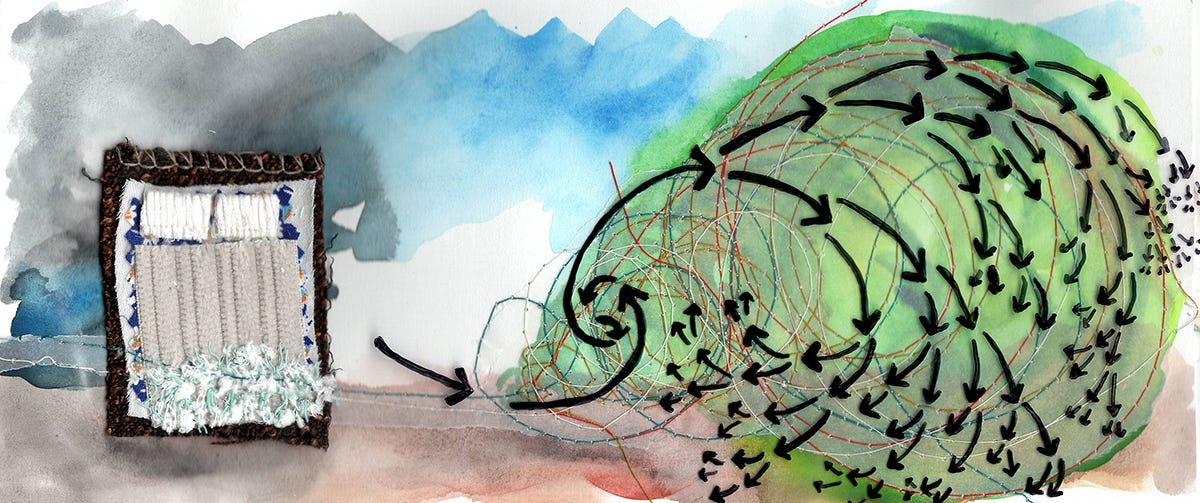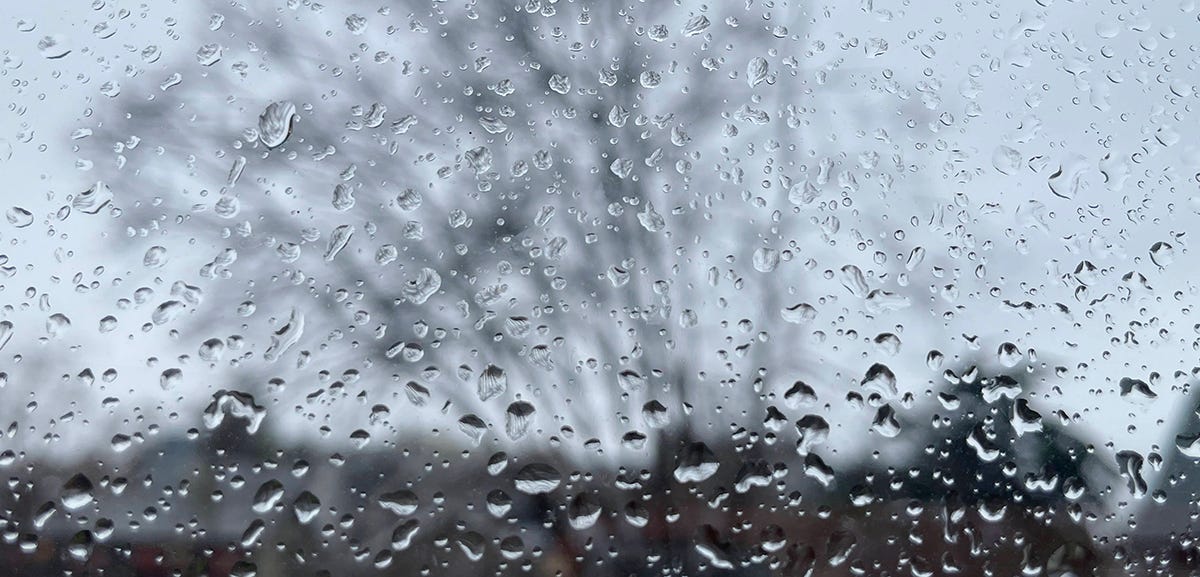Radical Rest & Regenerative Care
regenerative rest to create personal and planetary change
I am a design professor bridging the academics of environmental sustainability, the professional design community, and those who want to create change but don’t always know where to begin. We know the world around us is not sustainable, instead we need to find ways to design regeneratively - rejuvenating ourselves, our communities, and our planet.
Shortly before the holidays, I began writing a post on regenerative gifts I had planned to post thematically with the occasion. But then… came sick kids, the holidays (which in our house is a handful of birthdays + Solstice + Christmas), getting caught in the Southwest airlines debacle of flight cancellations and delays, family issues, and a constant flow of changed plans. Before I knew it, it was New Year's Eve and I was sitting in the emergency room of a small town midwestern hospital with my daughter who just endured a sledding accident. Hours later my husband and I tested positive for COVID as we had to navigate finding an emergency dentist, keeping our kids COVID-free, and finding our way back to California. By the time I got home, I was exhausted, heartbroken, and wishing for a do-over from the holidays. I had anticipated a restful restorative break and instead got the opposite, returning home more depleted than when I left.
While this just outright sucked, it was also the universe's way of reminding me of the dangers of burnout. What was planned to be a 10-day trip, we tried to cram into 7, and then for reasons I can’t really explain we added even more things in. Trying to do too much, in too little time had led to the ER, COVID, and over-tired kids.
Returning to California we’ve been pounded with rain which has caused a kind of forced rest indoors. I haven’t been able to go out running - an activity that usually regenerates me because of the storms. In a few moments of dryness, I tried to go for a jog, but my post-COVID lungs are not having it - sending me back inside to rest.
In academia most of us operate on semester cycles - cramming through 15 weeks of intensity, recovering with a break, then doing it all over again, and again, and again. The same could be said for many in the workforce working a traditional work week, recovering on the weekend, repeating a cycle of work stress, weekend, work, weekend… The cycle of burnout, rest, burnout, rest is unsustainable when these moments of rest do not allow us to recover nor do they fulfill us with additional strength and energy.
The same could be said for the cycle of consumption, recycling, consumption, recycling... Each time a piece of plastic is recycled it loses a little more of its strength. At best plastic can be recycled 3 times before being too brittle to use again. Not to mention that each time we throw things in the recycling bin, it’s only a fraction of them that get recycled at all. Design, trash, design, trash, design, trash… the cycle of “take, make, waste”, even when attempting to add in a recycle loop or circular flow is not sustainable because we are depleting resources each time.
This simple fact underlying the climate crisis is why we must switch to a regenerative model of design, production, living, and being. One that not just gives back but also restores, renourishes, and replenishes ourselves, our communities, and our planet.
I often use the analogy of regenerative braking used in electric and hybrid cars to explain regenerative design. When pressing down on the breaks in my electric car, more energy is created. The more I break, the farther my car will go. A simple diagram of this can be a powerful tool in visualizing the idea of regeneration. What else can be applied in this way? What actions can create more energy? What kind of slowing down will create growth? We can think about these questions for ourselves as individuals, as well as communities and larger global initiatives.

My holiday season of complete chaos has been a reminder of the need for radical rest and regenerative care. To break out of the cycles that can cause both personal and climate burnout. Living in an Amazon Prime Now world where we can have most anything delivered in two hours or less, there’s a desire for change to happen now. Yet what we also need is an element of slowness and rest. This can be difficult when working in the climate change space when we see the urgency of radical change that is needed now.
The radical rest I am proposing is rest that regenerates. Not a rest that will make it so that you can make it through another day. Not a weekend getaway that allows you to get through one more week of work, or a break that gets you ready to power through the next semester. The radical rest we need at regular intervals regenerates us to grow, to learn, to radiate, to explore, to keep doing the necessary work as regenerative designers to repair and renourish.
In between resting in the past weeks, I’ve also been prepping for the semester ahead. As an advocate for various un-grading strategies, I worked on re-writing my grading policies for the courses I’m teaching. I’ve structured the semester so that each week will be treated the same in an effort to have students maintain a sustainable workload. Rather than placing all the emphasis on the mid-term or the final - we will work at manageable tempo, each week asking new questions on how we can improve from the last.
Today the sun is out for the first time in weeks. I went for a very slow jog as I’m still recovering from lingering COVID symptoms. The tree that fell in our yard in the recent storms has been cut to logs stacked in a pile, with some taken out for an art installation. And I’ve repotted several cuttings from fractaling plants. Tomorrow more rain is expected, but today gave space for radical rest.




Thanks for sharing this - so agree with your comment “why we must switch to a regenerative model of design, production, living, and being. One that not just gives back but also restores, renourishes, and replenishes ourselves, our communities, and our planet”
Giving and finding the time and space to reflect and regenerate ourselves is vital - as with nature - at this as time of year. Wintering!
Really enjoyed this! Lovely writing and really resonated with the ideas.